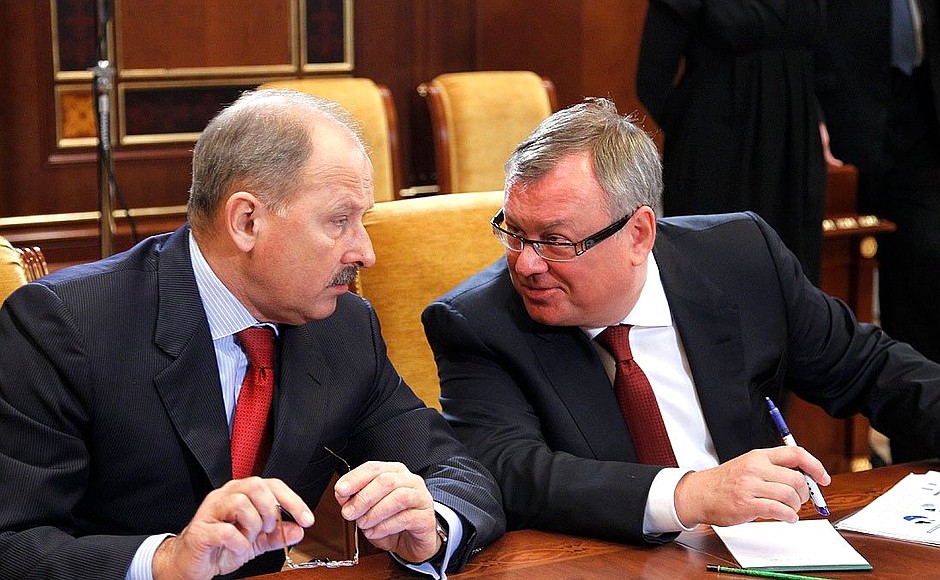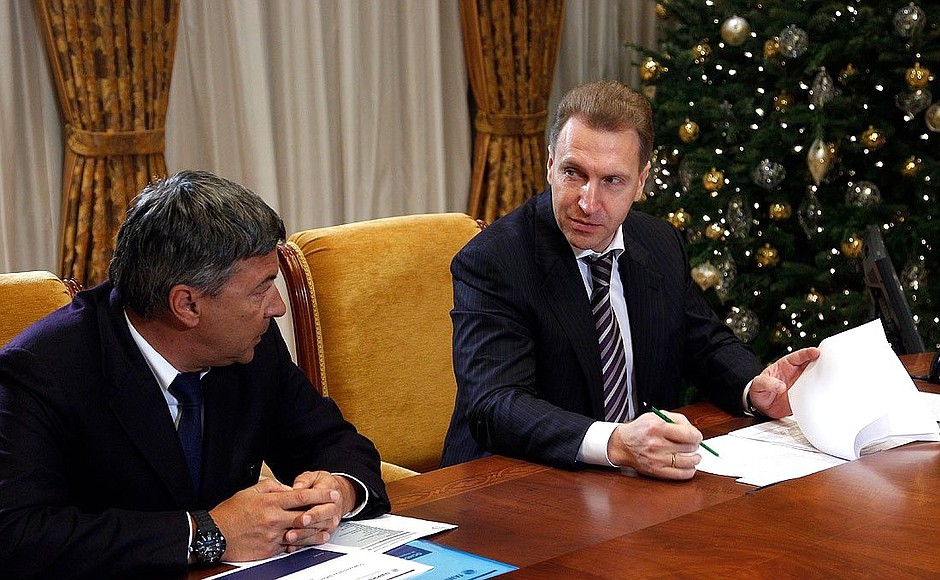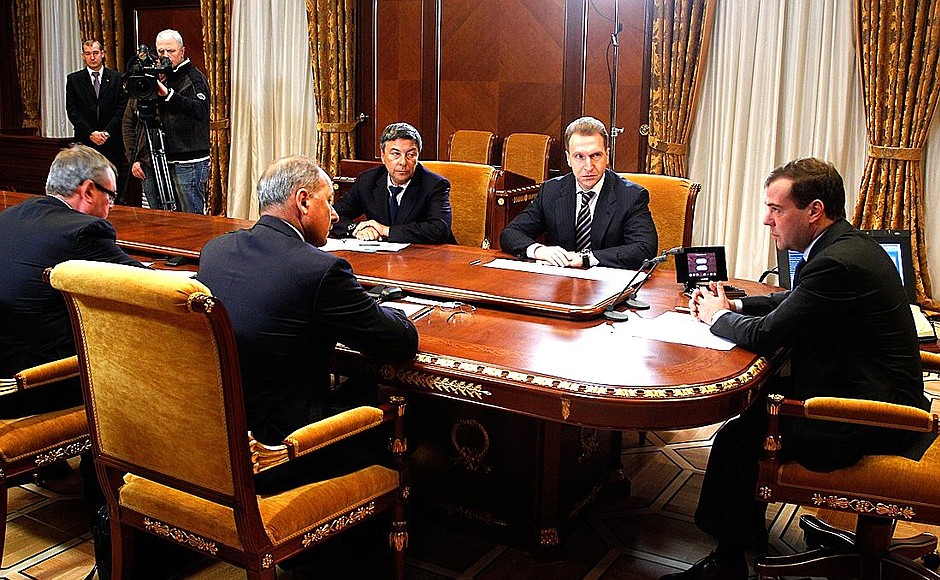Dmitry Medvedev identified three major problems faced by small businesses in Russia: administrative barriers, market monopolisation and problems in the energy sector, including high tariffs.
In his report, First Deputy Prime Minister Igor Shuvalov listed the measures taken by the Government to support small businesses. In particular, 124.5 billion rubles were transferred from the federal budget for this purpose over the past three years. All Russian regions have their own small business support programmes.
Vnesheconombank Chairman Vladimir Dmitriev said that VEB has signed an agreement with the German Development Bank to establish a private equity fund in support of small and medium-sized business. The fund’s capital will amount to about $1 billion. Mr Dmitriev said that, as evidenced by the forecast made by VEB and its German partners, there is a sound basis for attracting investors from around the world to join the fund.
Mr Dmitriev also noted that the Fund for Capitalisation of Russian Banks, which VEB established jointly with the Finance Ministry and International Finance Corporation, could provide real support for the modernisation effort of small and medium-sized businesses.
VTB Bank Chairman and CEO Andrei Kostin said that in 2011 the bank increased lending to small businesses by 65% and plans to double the number of such loans in 2012.
Gazprombank Chairman of the Board Andrei Akimov said that the bank’s strategy to 2015 includes a 15-fold increase in small business lending. The results that have already been achieved make it possible to revise the strategy by making a further increase in small business loans.
* * *
Opening remarks at a meeting with CEOs of several Russian banks
President of Russia Dmitry Medvedev: Good afternoon, colleagues,
Today I would like us to address a highly relevant issue: support for small business. I issued a number of instructions some time ago and the Government has been working on fulfilling them. A number of major Russian banks, both state and private, were involved in this work.
I know that each of your banks has relevant programmes, as you reported to me in our previous meetings. However, I would like to hear what has been achieved in greater detail, what reserves have been set up, and what additional measures could be taken to support small and medium-sized business with regard to bank lending, given the difficult situation taking shape in the international financial markets caused by problems with liquidity.
Nevertheless, we must do everything to make sure our economy continues to develop. Last year it posted exceptional growth rates, perhaps the best in recent years. You are aware of those figures: they include the growth rate of the gross domestic product, the national debt, which is among the lowest in the world, an unprecedented low level of inflation, and a number of other factors, including the level of unemployment, which is a key indicator and is also one of the lowest in the world at the moment.
Why did I mention unemployment? Because small business translates into jobs, and the programmes that the state launched during the economic crisis contributed to the creation of new jobs.
<…>





